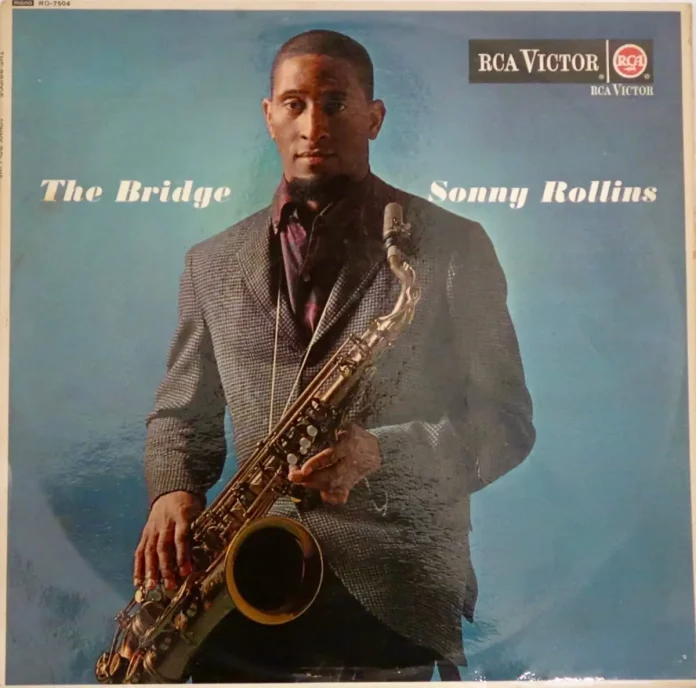The title of this album not only refers to the bridge in New York where Rollins did much of his practising during his two-year retirement, but also to this album being the first he has made in over three years – the bridge between the old and the new Rollins. Not that he has changed his style much – only certain aspects have been altered. For instance, his tone is now even richer and the occasional distortions and squeaks have been eliminated.
Also, in addition to his conception of the solo as an organic whole rather than as a series of choruses each independent of the one preceding and following it, Rollins has further developed his ability to extract the last ounce of meaning from a particular phrase taken from the melody of the song.
This is well illustrated on “Without A Song”, where he plays several choruses built around one phrase from the original melody. At other times, as in his early solo choruses on “John S.”, he will repeat the same phrase over and over again, and in this case he eventually reduces it to a single note. Few musicians would have the courage to attempt this sort of thing, for if it fails, the effect is nothing short of disastrous.
His playing of ballads was always a particular delight, and his solos on “Where Are You” and “The Child” are finely wrought and beautifully executed examples of his slow tempo work. The flair for unusual tunes is also well illustrated here – until Rollins played it, I had never thought of “Without A Song” as a vehicle for modern jazz improvisation.
Jim Hall is a good guitarist, though his tone is sometimes muffled – but this may be due to the recording. As an accompanist, he is deft and very helpful to Rollins, as a soloist he is competent, but not in the same class as the leader. Cranshaw plays excellent bass throughout, and although the volcanic drumming of Ben Riley is more subdued with this group than it was with the Eddie Davis-Johnny Griffin Quintet, he swings just as much.
Of the six tracks, only “You Do” is not an unqualified success; neither Rollins’ nor Hall’s solo flows easily, and both play rather disjointedly.
Discography
(a) Without A Song; (a) Where Are You?; (a) John S. (21 min) – (a) The Bridge; (b) God Bless The Child; (a) You Do Something To Me (20 min)
(a) Sonny Rollins (ten); Jim Hall (g); Bob Cranshaw (bs); Ben Riley (d).
(b) as for (a), except H. T. Saunders (d) replaces Riley. N.Y.C., late 1961.
(RCA Victor RD 7504 12inLP 35s. 9d.)
















